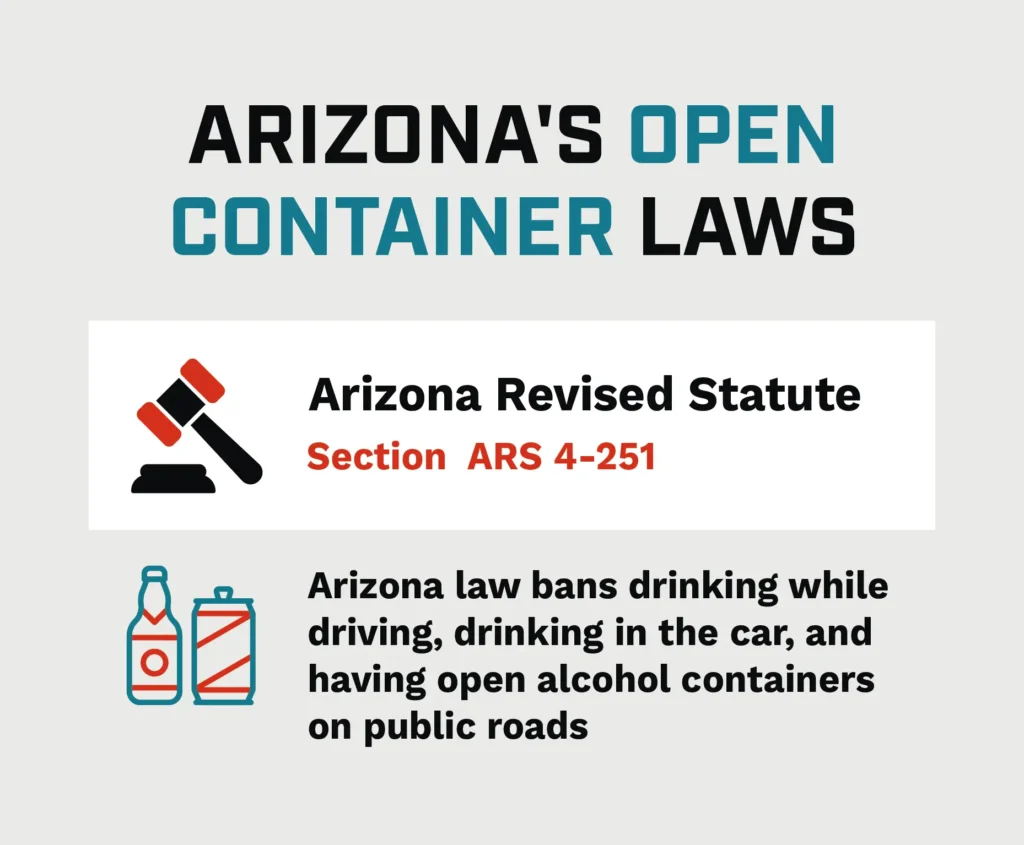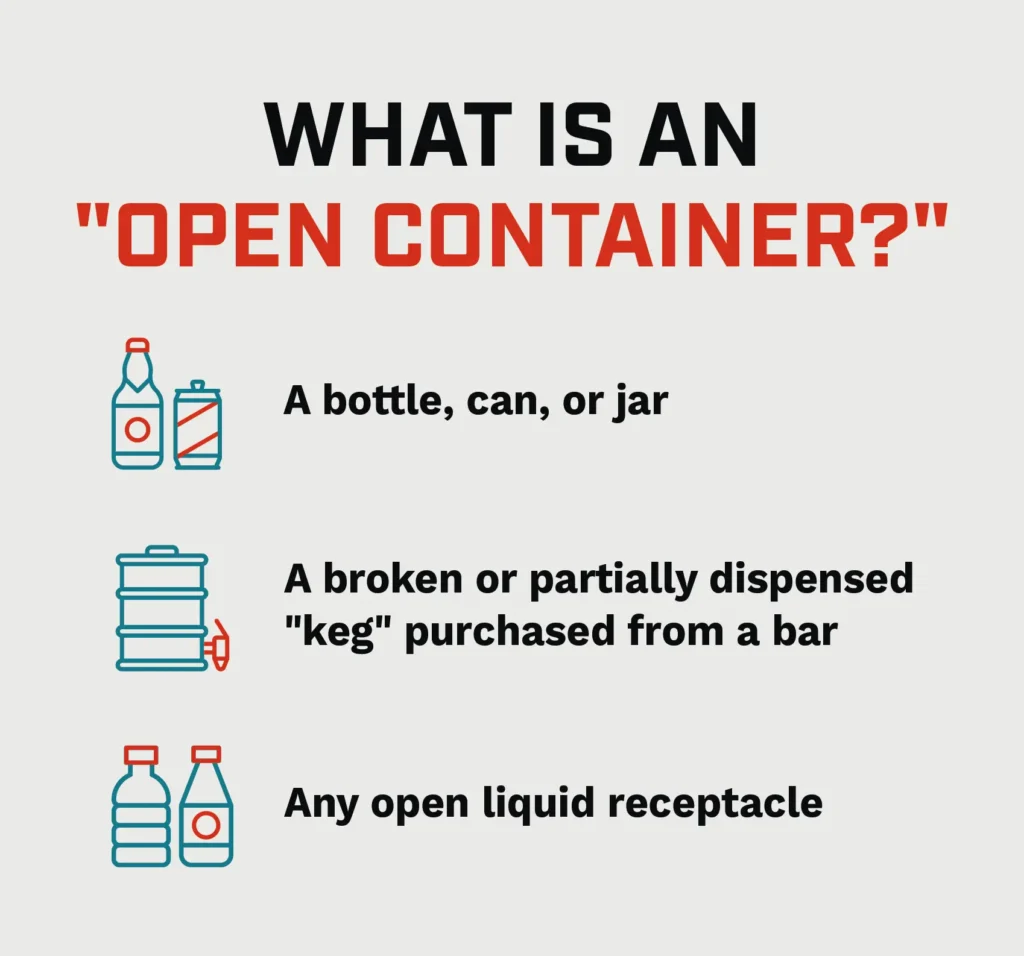
Posted on July 19, 2024 in Firm News
Did you know that Arizona’s open container laws make it possible to face an alcohol-related criminal charge as a driver, even if you are completely sober?
If you do not understand how open container laws work, you could find yourself facing prosecution for an alcohol offense even if you haven’t taken a single sip of alcohol.
At the Rosenstein Law Group firm, our Arizona criminal defense attorneys know all the ways that you can get into trouble by having alcohol in your car. If you have been charged with an Arizona open container law violation, call us at 480-248-7666 to set up a free consultation with an experienced criminal defense attorney.

The Arizona statute that prohibits having an open container of alcohol in your car is ARS 4-251. This law makes it illegal on any Arizona public highway to:

The statutory definition of an open container is inclusive of almost everything you can think of:
For example, if you are pulled over for any reason and you have a bottle of wine that you got corked at a restaurant during dinner in the passenger compartment, you can be charged with having an open container in your car.
The key aspect to remember is that these items must contain a “spirituous liquor” at the time the officer observes it. For example, if you have an empty beer or wine bottle in your car that is dry inside, it is not an “open container” in the legal sense despite being an open container in the actual sense because it currently does not contain any distilled spirits.
A motor vehicle is a vehicle that is under mechanical power and is primarily meant to be driven on public highways.
Under Arizona’s open container law, a public highway, or a right of way of a public highway, includes any street open to the public for vehicular travel that a town, city, county, the state of Arizona, or the federal government maintains.
This means that, aside from private roads, any public street you can drive on is likely to be a public highway for open container law purposes.
The passenger area of your car encompasses:
The passenger area does not include the trunk or the space behind the last upright seat if the car has no trunk.
If you are convicted of violating open container laws, then the potential penalties are those of a Class 2 Misdemeanor:
Longer-term consequences can include an enduring blemish on your public record, which can make it harder for other life activities such as getting a job, finding a place to live, or getting a loan.
During a traffic stop, police officers are trained to use their senses to evaluate whether reasonable suspicion exists that you are engaged in behavior that could be a legal violation.
When a law enforcement officer is standing next to your vehicle to talk with you, it is a safe bet that the officer is looking inside your car to see if anything suspicious is in plain view, like an open container of alcohol.
If the officer sees one or more open containers of alcohol within the passenger compartment of your car, they may consider this grounds for reasonable suspicion that you may be driving under the influence of alcohol.
If you are pulled over and are cited for an open container violation, do not be surprised if the officer also asks you to perform one or more field sobriety tests to see if you are sober.
There are a handful of circumstances that the open container laws accept open containers in motor vehicles:
If you are accused of violating Arizona’s open container law, you could also be looking at additional DUI charges. This could lead to more serious effects, such as jail time for up to four months.
This serious matter means you will need serious legal representation. Our experienced, aggressive criminal defense attorneys at the Rosenstein Law Group offer free consultations for open container cases. Call us today at 480-248-7666 or contact us online to schedule one today.